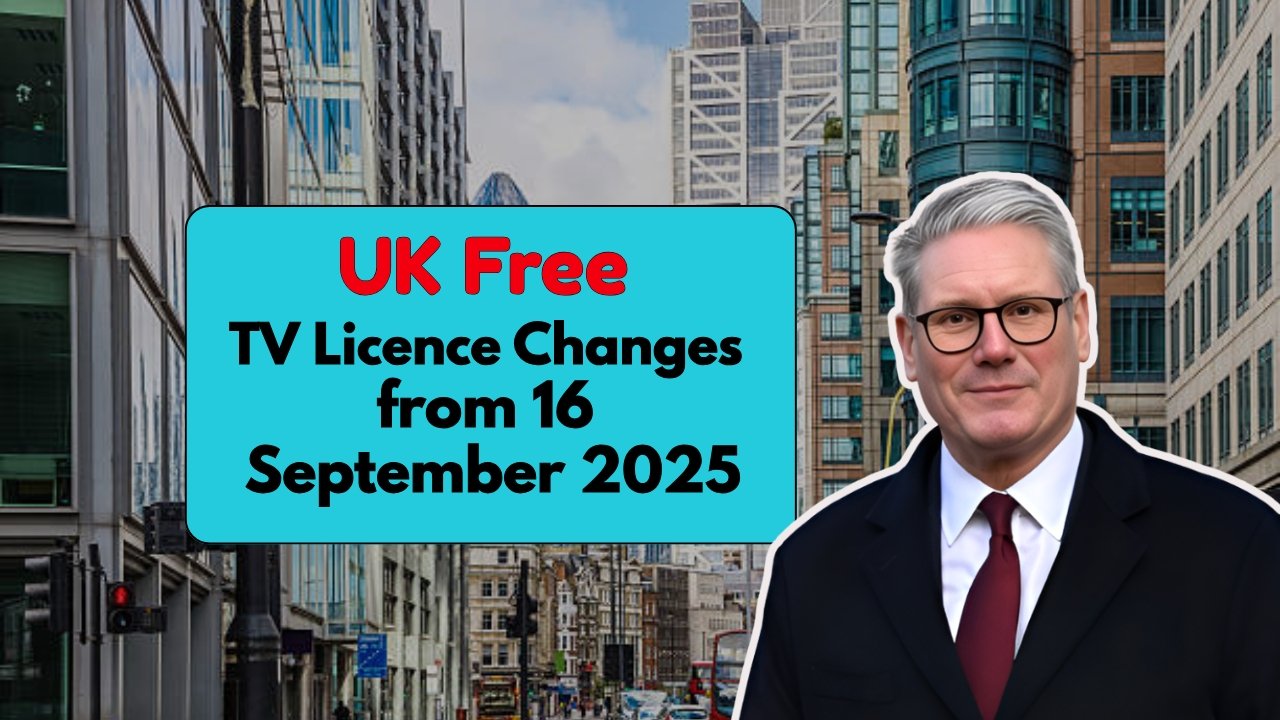Join on WhatsApp
Get the latest updates directly on WhatsApp – motivation, news & more!
The UK government has confirmed a major update regarding free TV licences for pensioners, set to take effect from 15 September 2025. For years, the policy surrounding TV licence fees for older residents has been the subject of much debate, with campaigners calling for fairer access and financial relief for vulnerable groups. The upcoming changes will have a direct impact on millions of households, especially seniors over 65 who rely on television as their main source of news, entertainment, and companionship.
This article explores what the new rules mean, who will qualify for free licences, and how families can apply or confirm their eligibility.
Why the Free TV Licence Policy Matters
Television plays a significant role in the daily lives of older citizens. It is not only a form of entertainment but also a lifeline for social connection, reducing feelings of loneliness and isolation. With rising living costs, the annual TV licence fee of £169 has become a financial burden for many pensioners, particularly those dependent on fixed incomes such as pensions or benefits.
The free licence programme, therefore, provides essential support. It ensures that seniors can continue to enjoy TV services without the pressure of added costs. The 2025 changes aim to expand support and bring more fairness to the system.
What Changes on 15 September 2025?
From 15 September 2025, the eligibility rules for free TV licences will be broadened. The government has announced three major adjustments:
- Automatic Free Licence for Over-75s – All individuals aged 75 and above will be entitled to a free TV licence, regardless of their income or benefit status. Previously, only those receiving Pension Credit qualified.
- Partial Discount for Ages 65–74 – Pensioners in this age group will now receive a 50% discount on their annual licence fee. This is aimed at easing the financial pressure on those approaching advanced retirement age.
- Simplified Application Process – Eligible households will no longer need to reapply annually. Once confirmed, the free or discounted licence will remain valid until the person’s age group status changes.
Who Will Qualify for Free or Discounted Licences?
The updated scheme ensures that more pensioners benefit from the programme. Here is the breakdown:
- Ages 65–74: 50% reduction in the TV licence fee, lowering the cost to around £84.50 per year.
- Ages 75 and above: Full exemption, meaning no payment required.
- Low-Income Pensioners: Those already receiving Pension Credit will continue to qualify automatically, even before turning 75.
This expansion means that an additional 1.8 million households are expected to benefit from September 2025 onwards.
How to Apply for a Free or Discounted Licence
The application process has been designed to be straightforward:
- Online Application – Pensioners can apply through the official TV Licensing website by entering their details and proof of age.
- Phone Assistance – A dedicated helpline will be available for seniors who are not comfortable with online forms.
- Automatic Upgrades – Those already registered for concessions, such as Pension Credit recipients, will be upgraded automatically without the need for new applications.
Households will also receive notifications and reminders from the TV Licensing Authority before the September 2025 changes take effect.
Impact on Pensioners and Families
The reform is expected to ease financial stress for seniors struggling with rising living costs, energy bills, and healthcare expenses. For a 75-year-old pensioner, saving £169 a year may not seem huge to some, but for those on limited incomes, it can mean extra funds for food, medicine, or heating.
Families will also benefit indirectly, as they may no longer need to cover TV licence costs for elderly parents or grandparents. This change will help ensure older generations maintain independence while enjoying the same services as before.
Concerns and Criticism
While the reform has been welcomed by most campaigners, some critics argue that the policy does not go far enough. They believe free licences should be extended to all pensioners from 65 onwards, not just a partial discount. Others point out that the government’s funding plan for this scheme remains unclear, raising questions about its long-term sustainability.
The BBC, which relies heavily on TV licence revenue, has also expressed concern that the expansion could affect its programming and budget. However, government officials have stated that additional public funds will be allocated to cover the shortfall.
Preparing for the Change
For those approaching the qualifying age, it is important to prepare in advance. Seniors are encouraged to keep identification documents updated, such as passports or driving licences, which may be required during the application. Families can also support elderly relatives by helping them apply online or check their eligibility.
The government has promised to launch awareness campaigns across TV, radio, and newspapers to ensure that no pensioner misses out on the benefit.
Conclusion
The UK’s decision to expand free TV licences for over-65s marks a significant step toward supporting seniors during a time of rising living costs. Starting 15 September 2025, millions of pensioners will enjoy either free or discounted TV access, reducing financial pressure and promoting social inclusion.
While the debate around funding and fairness continues, there is no doubt that the reform will bring relief to many households. For pensioners who see television as a daily source of news, entertainment, and connection, this policy represents not just financial assistance but also recognition of their contribution to society.

